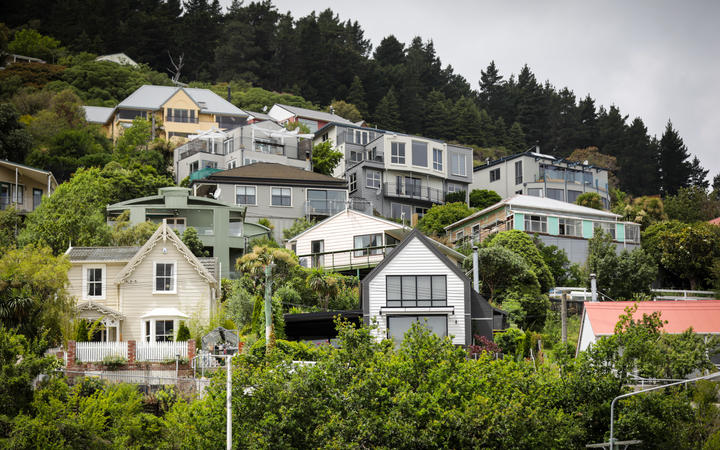Buying a home is increasingly out of reach for many New Zealanders as housing affordability plummets to historically low levels.

Income inequality needs to be considered more when seeking solutions for the housing crisis, an expert says. Photo: RNZ / Nate McKinnon
A report by CoreLogic found average property values surged 6.1 percent in the final three months of last year, while they went up more than 11 percent for the whole of 2020.
CoreLogic senior property economist Kelvin Davidson said while wages had fared better than expected given the pandemic, average household incomes were not keeping pace with property values.
“Based on the historical data we have, houses are as unaffordable as they’ve been at any time for at least 17 years, maybe longer,” Davidson said.
He said income inequality needed to be more thoroughly examined when seeking solutions for the housing crisis.
“New Zealand’s incomes don’t tend to match those of overseas, so there are perhaps some fundamental issues there. Attention on housing supply and rising incomes would be a good things.”
On the back of rapid growth in property values, many areas have moved beyond “cyclical highs”, especially in Tauranga, Hamilton, Wellington, and Dunedin, the bi-annual report found.

Wellington is among cities moving beyond “cyclical highs”, a report has found. Photo: 123rf
Meanwhile, Auckland remained relatively less affordable than most other parts of the country, but was still in a better position than late 2016.
The rare exception among the main centres has been Christchurch, which has been balanced for the past five to six years, with the right number of houses being built to meet population growth, he said.
“This is a good test case for what happens when supply is allowed to adjust. Indeed, we are now seeing signs that people are recognising the relative affordability in Christchurch and considering it a better place to buy as an investor or owner-occupier.”
 Christchurch is the exception – house building is matching population growth. Photo: RNZ / Nate McKinnon
Christchurch is the exception – house building is matching population growth. Photo: RNZ / Nate McKinnonMortgage rates offset by price rises
Outside the country’s main centres, the vast majority of provincial areas had also become less affordable than normal.
“Perhaps one of the most interesting things from the report is how broad based this is – wherever you look housing affordability has gotten worse.”
Although falls in interest rates over the past nine to 12 months have benefited mortgage affordability, the sharp rise in property values lately has dampened that effect, Davidson said.
For renters, average rents were absorbing about 21 percent of a household’s income, only slightly above the normal level of 20 percent, the report said.
